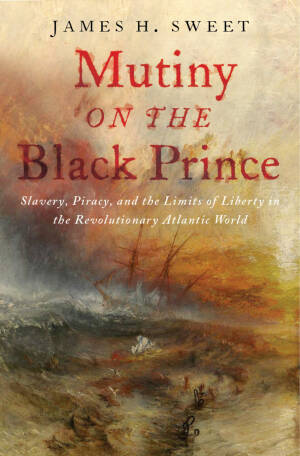Mutiny on the Black Prince
Slavery, Piracy, and the Limits of Liberty in the Revolutionary Atlantic World
James H. Sweet
In 1768, the British slave ship Black Prince, departed the port of Bristol, bound for West Africa. It never arrived. Before reaching Old Calabar, the crew mutinied, murdering the captain and his officers. The mutineers renamed the ship Liberty, elected new officers, and set out for Brazil. By the time the ship arrived there, the crew had disintegrated into a violent mob and fired into the port city. After the Black Prince wrecked off the coast of Hispaniola, the rebels fled to outposts around the Atlantic world. An eight-year manhunt ensued.
At the very moment that the American Revolution unfolded in North America, the Black Prince‘s owners conducted a “shadow” revolution, mobilizing the power of the British Crown to seek justice and restitution on their behalf. These private merchants used state surveillance, policing, extradition, capital punishment, international diplomacy, and even warfare in order to protect their wealth.
During an era of professed liberty and freedom, the privatization of state power was already emerging, replacing monarchies with corporate oligarchies, presaging a new kind of political power in the Atlantic world. The eighteenth-century Bristol slave merchants and subsequent generations of their families accrued great fortunes from the trade and invested it in early British banks, railroads, insurance companies, industrial manufacturing, and even the Anglican Church.
A dramatic story In its own right, Mutiny on the Black Prince makes clear how British slavery shaped the industrializing Atlantic economy and led to the evolution of the modern corporate state
